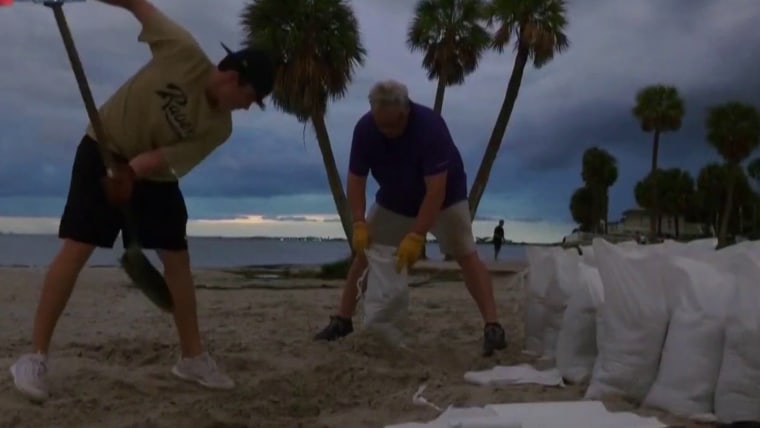State lawmakers have attempted to address the problem in recent years, but it has done little to stem the ongoing concerns.
In May, Florida Gov. Ron DeSantis, a Republican, signed a bipartisan property insurance reform bill into law, aiming to provide some relief to Floridians. The law poured $2 billion into a reinsurance relief program and $150 million into a grant program for hurricane retrofitting, prohibited insurance companies from denying coverage based on the age of a roof, required insurance companies to explain denied claims and provide greater transparency, and limited attorney fees on frivolous claims and lawsuits.
DeSantis’ office emphasized the protections the law created when asked for comment and noted the governor’s comment on Tuesday in which he said, “There is more that I want to do in terms of the wind insurance, and that is something we are going to address. Look, at the end of the day, we’ve got to make sure that folks are taken care of. So, we will do that, whatever we need to do.”
Despite the work by state lawmakers, many remained skeptical that they had done enough to protect Florida policyholders and ensure that the market could survive a damaging storm.
Friedlander said it could take “a couple of years before the market sees any impacts. None of the reforms passed this year offer any immediate relief to stabilize the property insurance market.”
He noted that more than 100,000 property claim lawsuits were expected to be filed in Florida for the second consecutive year in 2022, which accounts for 80% of the property claim lawsuits in the U.S. These estimates do not account for any claims or elements of litigation tied to Hurricane Ian.
“Until strong actions are taken to disincentivize the large volume of property claim lawsuits being in Florida, the market will continue to deteriorate,” he added.
Florida Insurance Consumer Advocate Tasha Carter said her office remains inundated by calls from policyholders who were dropped by their insurance companies or individuals who face significant rate increases or limited capacity in the market.
“The issues that have impacted the market are multifaceted,” she said, “and so I do believe that even with the steps that the legislature has taken in recent years that additional steps are necessary to stem the tide of significant rate increases, to protect consumers to reduce some of the frivolous litigation that’s going on within the industry and to just generally improve the overall insurance consumer experience.”

Carter said she is particularly concerned about those who have recently lost coverage because finding a new policy ahead of a hurricane could prove to be nearly impossible. She encouraged Floridians to turn to Citizens Property Insurance Corporation in that instance, the state-run insurer created to be a safety valve for Florida residents.
That backstop faces a potentially untenable position, however.
Because Florida now boasts the highest average property insurance premiums in the nation, as a string of private insurers have closed their doors, homeowners have increasingly turned to Citizens within a market that has limited options.
While Citizens is currently flush with cash, it now has approximately 1.3 million policyholders, up from about half a million just two years ago.
“The bigger Citizens’ exposure gets, the more likely a catastrophe like Ian will cause it to burn through its capital,” said Charles Nyce, a professor at Florida State University where he serves as research director for the Center for Risk Management Education and Research.
Should Citizens’ financial position become threatened, it could begin levying additional assessments not only on its own policy holders, but on every insurance policy in the state, with the exception of medical and malpractice holders.
A Citizens spokesman did not immediately respond to a request for comment, but the insurance provider acknowledged the problem on its website.
“The risk of assessment is real, especially as Citizens continues to see its policy count rise in the face of challenges in the private market,” it said.


